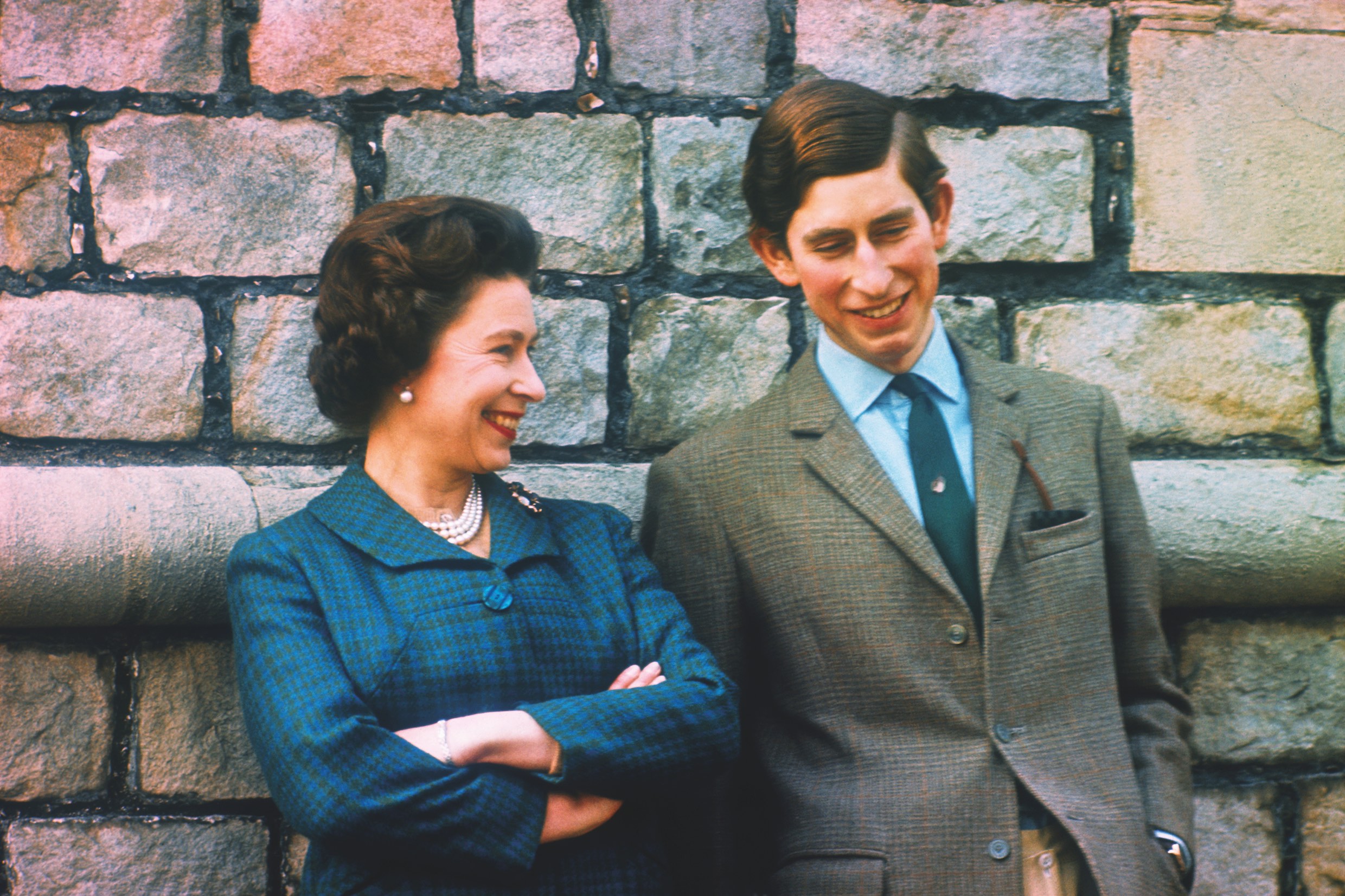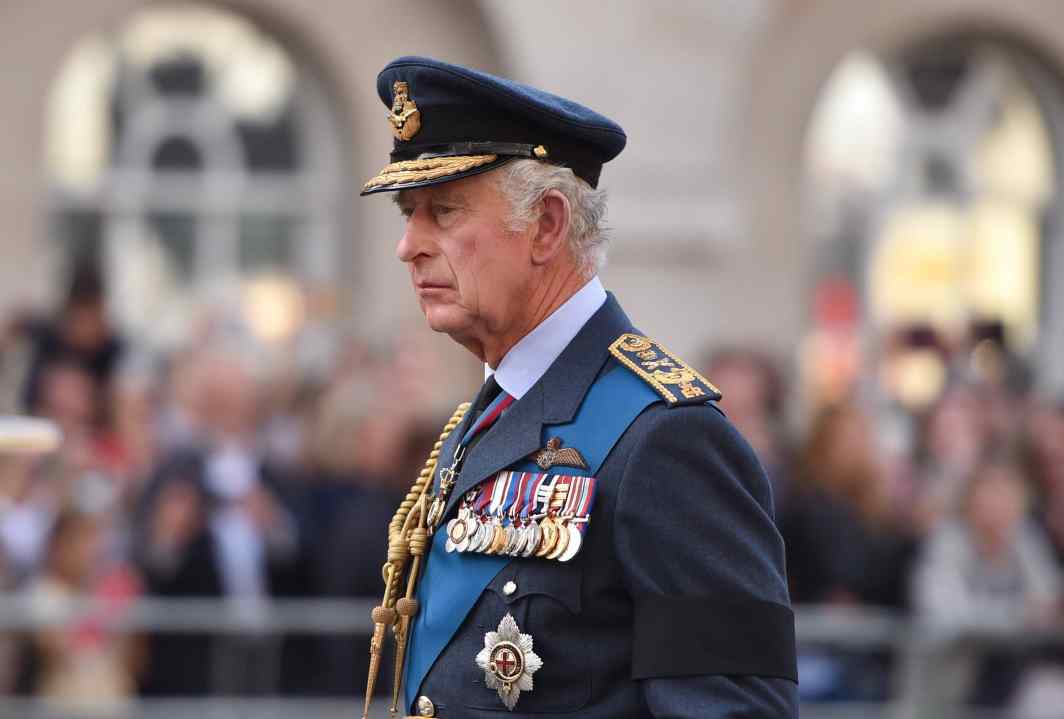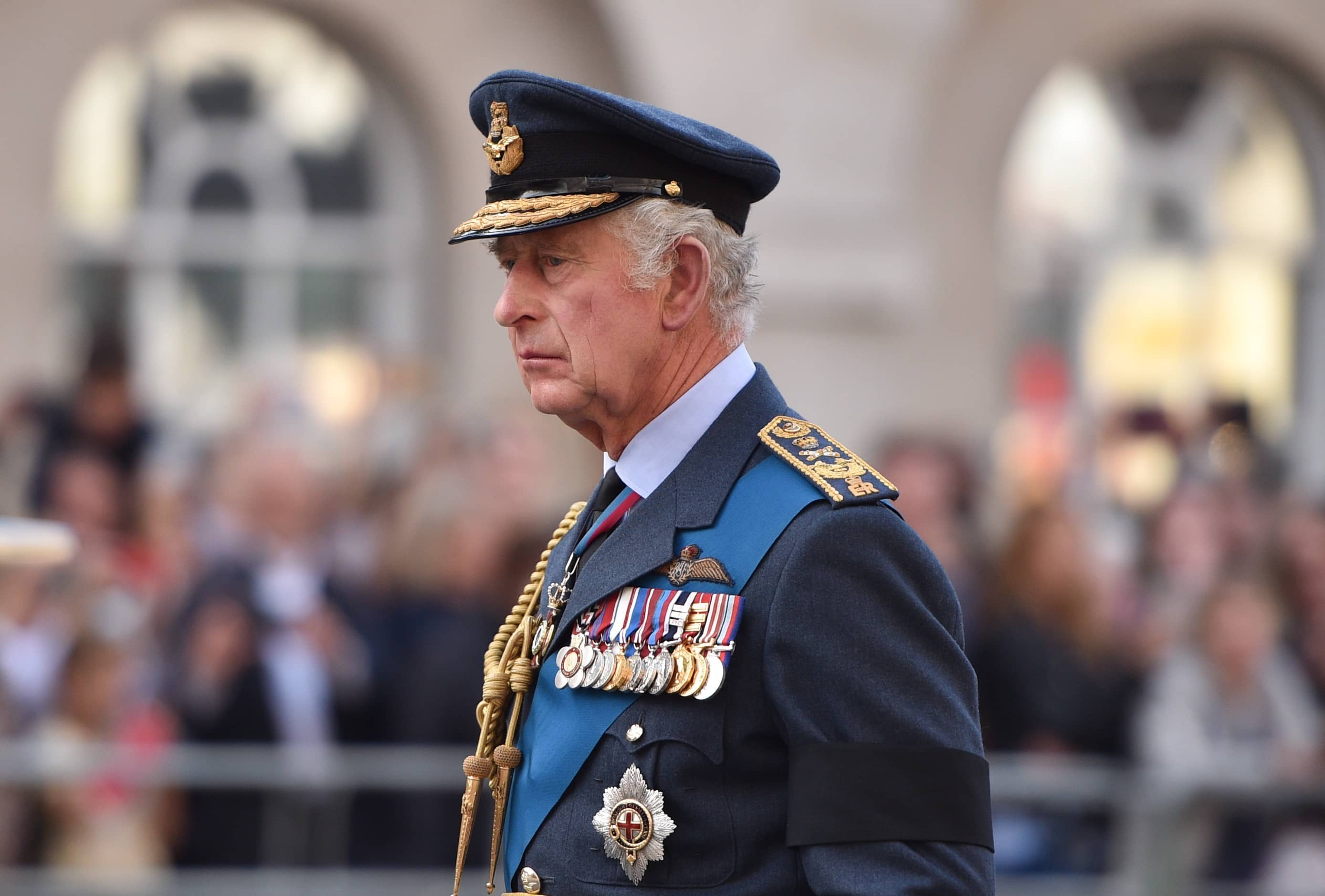Charles III’s first address to the nation as King began by speaking of sorrow – and went on to speak of love. He used ‘love’ or its cognates eight times in that short speech. He spoke of his ‘darling Mama’ and ‘dear late Papa’, of love for Harry and Meghan, love for his people and for tradition, and the loving support of his ‘darling wife’. He spoke, too, of grief and consolation.
In setting out his stall as King – if that’s not too vulgar an expression for what he has been doing over the past few days – Charles III has done so in terms of feeling. He has not spoken just about his devotion to duty, but about his heart. He has been King, but also chief mourner – the visual focus of a huge historical event. He has walked solemnly behind his mother’s coffin just as, decades ago, his sons walked behind that of their mother. It hasn’t hurt, in symbolic terms, that his mother died in Balmoral and that his progress to the throne began in Scotland. The tenebrous image of a kilted King in conversation with a respectful Nicola Sturgeon will, perhaps, give a little emotional fibre to the webbing that binds the Union.
The tenor of all this will seem, to some, intolerably touchy-feely. They will note that ‘service’ rather than ‘love’ was the keynote of Elizabeth II’s speech on her 21st birthday. But autres temps, autres moeurs: Charles must work with what he’s got. Whether he likes it or not – and I suspect that he doesn’t like it one bit – His Majesty comes to the throne not only in a more emotionally unbuttoned age, but as a monarch whose emotions have been part of the public conversation. We think we know him. When Elizabeth became Queen in 1952, we hadn’t the first idea about her inner life. She spent the seven decades that followed keeping it that way. As Prince of Wales, on the other hand, Charles has been a central fixture in our national soap opera.

We can, and do, wonder at the psychological implications of his long wait for the crown. Imagine if your whole existence on Earth was geared to a single purpose – and you still hadn’t embarked on that purpose ten years after most of your contemporaries had retired. Imagine, what’s more, if you only get to embark on it when your mother dies. Charles has spent the whole span of a human life in history’s waiting room leafing through back-issues of Punch – and now his appointment is called at the time of his greatest personal grief. He’s human. That’s sad. ‘I speak to you today,’ as he opened his speech, ‘with feelings of profound sorrow.’
More than that, the course of his life to date has traced the course of the modern media age. It’s almost too neat that his mother’s coronation was credited with marking the shift to television becoming the dominant broadcast medium in this country. Charles was four. His young manhood and middle age tracked the media explosion that was to follow: the proliferation of broadcast TV, the decline of deference, the 1980s high-water mark of the red-top tabloids, and finally the Gutenberg galaxy of the digital era. He becomes King at a time when everything is public property, emotion is wired into the algorithms that determine how information travels, and there is not the faintest tatter of shade to prevent daylight spilling in on magic.

There is not the faintest tatter of shade to prevent daylight spilling in on magic
We have looked over the melancholy watercolours of his children’s book The Old Man of Lochnagar; seen his fanboyish love – cruelly mocked by Spike Milligan – for The Goon Show; winced at the younger royals cavorting in It’s A Royal Knockout. We’ve heard his most private conversations on pay-to-listen phone lines. Private Eye has lampooned him as ‘Heir of Sorrows’. His disappointed loves, his mistakes and missteps, his bursts of petulance, his impassioned ideas about the built environment, farming and homeopathy: all have – sometimes through his own fault, sometimes not – been consumed as a form of public entertainment. His brother is a TV producer married to a PR executive. Perhaps the defining issue for his children has been how to navigate lives lived from infancy in the fusillade of flashbulbs and shutter-clicks.
And, of course, he was unhappily married to the most famous woman in the world. Every twist and turn of that relationship was tracked in the media, and the world gleefully passed judgment on the messy adulteries and recriminations which followed. That he ended up with a woman he had loved since before he met his first wife, and that she turned out to be an extraordinarily good egg, slowly became a subject for national sympathy and satisfaction. Most of us make messes of our love lives at one time or another. Few of us do so as publicly. None of us can imagine having the death of our ex-wife marked on the front page of a tabloid by a long-lens shot of us taking a solitary walk in the Highlands headlined, shamefully: ‘Charles weeps bitter tears of guilt.’
When Diana died – in some ways a comparable moment of national emotion to the present one, with cellophaned flowers silting up the gates of royal palaces – there was never any question of the Queen guiding the country through its mourning. It was for Tony Blair, with his tremulous remarks about the ‘People’s Princess’, to shape that moment. Indeed, the Queen’s reticence on the subject became a focus of public rage so intense that, for a moment, there were fears it would bring down the monarchy itself.
The death of the Queen at the end of a long life has left the public mood more melancholy and less febrile. The mourning is more stately. But it’s still notable that it seems fit and proper for King Charles to lead it: that he’s not just expected to serve as the figurehead for the constitution, but the weather vane for the national mood. This new and gorgeous garment, majesty, sits not so easy on him as we think. But it’s a different garment than it was 70 years ago – and it is, those who value the monarchy and desire its survival must hope, well tailored to the age.








Comments